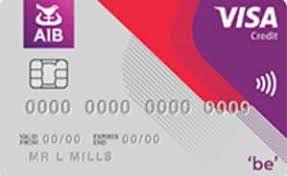Handling your money wisely is key to gaining financial stability, especially in Ireland’s unique economy. This article offers top advice to better manage your finances. It covers smart budgeting, saving tips, and how to invest wisely. We’ll use trusted Irish finance sources to guide you. The goal is to help you understand financial management better. This way, you can control your economic destiny confidently.


Card AIB Click
Understanding the Importance of Financial Planning
In today’s fast-paced world, especially in Ireland, mastering financial planning is key to fulfilling your dreams. It helps people set and achieve goals like buying a home or saving for retirement. With the help of financial experts, the intricate details of managing money become clearer.

Having a financial plan is like having a map that guides you. It eases worries about money matters. By following a well-thought-out plan, people can improve their financial health.
This allows them to make smart decisions that help them in the long run. Being smart about money means being ready for what comes next, helping everyone reach their goals.
Benefits of a Solid Financial Plan
A well-crafted financial plan gives clear direction, helping people reach their financial dreams. It helps increase savings by budgeting well and spending wisely. Knowing how you spend your money leads to smarter choices, focusing on what’s necessary and cutting down on what’s not.
Being smart about taxes is key to a strong financial plan. It means less money paid in taxes by using deductions and credits right. Getting advice from financial experts can make these plans even better, fitting your own life perfectly.
A strong financial plan looks at now and the future. It helps in growing your wealth and managing what you leave behind wisely. This plan makes you think of the future and move towards financial security step by step.
Common Misconceptions about Managing Finances
Many people think managing money is only for the rich. This view stops everyone from learning about money management. In fact, people from all walks of life can gain from learning how to plan their budget.
There’s also a myth that financial plans can’t change. But money situations often change, so plans need adjusting too. If we don’t update our plans, we might miss out on chances or face money problems.
It’s easy to forget how much our feelings can affect our money choices. Understanding these emotions helps us make better decisions. Knowing about money isn’t just about numbers; it’s also about understanding how our feelings towards money can influence our financial health.
How to Create a Budget that Works for You
Creating a budget is key to better managing your money. Start by setting both short- and long-term financial aims. These might be saving for a house or planning for retirement. Knowing your goals helps shape your approach to budgeting.
It’s important to closely look at what you earn and spend. This gives you a clear view of your finances. You can try the 50/30/20 rule for budgeting. It suggests spending 50% on necessities, 30% on wants, and 20% on savings. This approach is praised for its efficiency in money management.
Keep an eye on your budget and adjust it as needed. Life changes and new aims can pop up. By keeping your budget updated, you make sure it fits your current financial goals. This keeps your money plans useful and on track.
Expert Tips for Managing Finances in Ireland
To manage your finances well in Ireland, you need to fully understand your money matters. It’s critical to set clear financial targets to steer your planning. We’ll explore how to find those targets, and how to keep track of your earnings and spending accurately.
Identifying Your Financial Goals
Setting clear financial goals is the first step to manage your money smartly. You might wish to save for a holiday, buy a house, or plan for old age. Knowing what you want to achieve is key. Here’s how to pinpoint your financial goals:
- Think about your dreams and what you want financially.
- Have short-term and long-term goals for a good balance.
- Make sure your goals are realistic and can be tracked.
Tracking Your Income and Expenses
Keeping tabs on what you earn and spend is crucial for handling your money. By recording your income and outgoings, you can spot your spending trends and where you might need to cut back. Try these tips for effective tracking:
- Use apps or digital tools for up-to-date tracking.
- Keep a manual log of transactions if that’s your style.
- Check your finances monthly to spot trends and tweak your budget.
Making the Most of Tax Reliefs and Credits
In Ireland, knowing about tax reliefs and credits can really help your finances. For example, you can get a home carer tax credit of €1,800. Also, you can claim back 20% of medical expenses. These benefits can help you save money on taxes.
Claiming these tax reliefs has been made easy with online tools. Many people use services like taxback.com and save up to €1,880 a year. Getting to know these financial perks can change how you manage your money.
Strategies for Smart Saving: Cutting Costs
Smart saving strategies can really help your finances. By changing utility companies and buying groceries wisely, you can save a lot. These changes can reduce your bills and day-to-day expenses.
Switching Utility Providers
Changing utility providers regularly is a top way to save on bills. This ensures you’re always getting the best deals. In Ireland, households can save about €723 a year on energy by switching. Looking at different suppliers helps you save more without giving up what you need.
Smart Grocery Shopping Strategies
Being smart about grocery shopping is crucial for saving money. Choosing off-brand items over famous names can cut costs but still give you quality. Shopping at stores like Lidl or Aldi can also help you save, possibly reducing your grocery bill by around €660 a year. Planning your meals and sticking to a shopping list prevents unnecessary buys.
Investing Wisely for the Future
Investing is key for long-term wealth. It lets you grow your money in ways saving alone can’t. When deciding how to invest, it’s important to look at stocks, bonds, and real estate. Pick those that match your risk comfort and goals.
Getting to know market trends and economic signs can help you earn more. Talking to financial advisors is a smart move. They give tips that can lead to bigger returns. Starting to invest early uses the magic of compound interest. This speeds up your money’s growth, helping you reach big dreams sooner.
Spreading your investments can lower risks while taking advantage of different market chances. It’s smart to check and change your investment plan regularly. This keeps your strategy right for your changing financial aims. Doing so helps ensure you grow and keep your wealth into the future.
Becoming Debt-Free: Tips and Tricks
Many people aim to be debt-free. Start by targeting debts with high-interest rates like credit cards. Set up a plan to pay them off. Keeping a close eye on spending helps direct money towards reducing debt.
The snowball method is a smart choice. It lets you clear smaller debts first, gaining confidence. By saving more, you have extra funds to lower your debts, making financial freedom closer.
It’s helpful to get financial advice to stay on track and enhance debt management plans. With consistent effort and patience, reducing debt is possible. This leads to better financial well-being and less stress.
Conclusion
Managing your money well in Ireland is key to a bright future. It’s important to plan your finances by saving and investing smartly. Doing this helps you avoid debt and get ready for the future.
Getting advice from financial experts can make your money work better for you. They help you understand complex money matters. This lets you make smart choices for your future.
The first step to financial health is making careful and informed decisions. Stick with your financial plans. Then, you can enjoy a safer and richer future in Ireland.
FAQ
What is the importance of financial planning in Ireland?
How can I create an effective budget?
Are there any tax reliefs available for individuals in Ireland?
What are some effective saving strategies for Irish households?
How should I approach investing for the future?
What strategies can help me become debt-free?
How can I track my income and expenses effectively?
Conteúdo criado com auxílio de Inteligência Artificial



